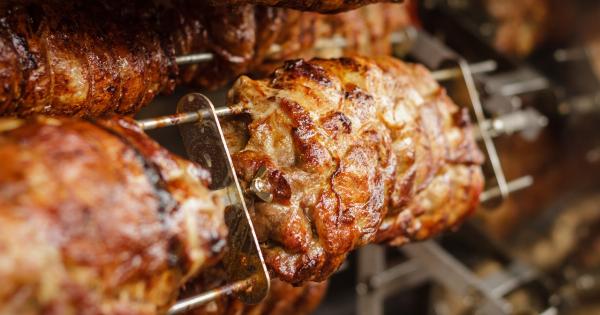Food is a basic necessity that we all need to survive. However, some individuals may develop an unhealthy relationship with food that affects their overall well-being.
Food addiction is a real issue that can cause physical, emotional, and mental health problems. In this article, we’ll cover the six signs that indicate if food addiction is controlling your life.
Sign #1: Cravings for Certain Foods
If you feel a strong desire to eat specific foods, even when you’re not hungry, this could be a sign of food addiction. Food cravings are usually intense and difficult to ignore.
You may experience these cravings when you’re feeling stressed, anxious, or bored. If you find yourself repeatedly reaching for the same foods, it’s time to assess whether you’re addicted to them.
Sign #2: Eating Despite Being Full
Another sign of food addiction is the inability to stop eating, even when you’re full. You may feel like you have to finish what’s on your plate, or you may continue eating even when you’re no longer hungry.
This behavior can lead to weight gain and other health issues, such as diabetes and heart disease.
Sign #3: Hiding Food or Eating in Secret
If you find yourself sneaking food or hiding it from others, this could be a sign of food addiction. You may feel ashamed or embarrassed about what you’re eating and don’t want others to know.
This behavior can also lead to feelings of guilt and low self-esteem.
Sign #4: Feeling Guilty or Ashamed After Eating
After eating, you may experience feelings of guilt or shame, even if you didn’t overeat. This can be a sign that you’re overly focused on what you’re eating and are afraid of gaining weight or not being able to control your eating habits.
Sign #5: Using Food to Cope with Emotions
If you find yourself turning to food to deal with emotions, such as stress, anxiety, or sadness, this could be a sign of food addiction.
Food can provide temporary relief, but in the long run, it can lead to more emotional problems and a greater reliance on food.
Sign #6: Continuing to Eat Despite Negative Consequences
If you continue to eat unhealthy foods, even when you know they’re negatively impacting your health, this is a major sign of food addiction.
You may experience physical symptoms, such as fatigue, headaches, or digestive problems, but still can’t resist the urge to eat these foods.
If one or more of these signs apply to you, it’s time to take a closer look at your relationship with food. Food addiction can be overcome with the right support and resources.
Consider reaching out to a healthcare professional or joining a support group.
























